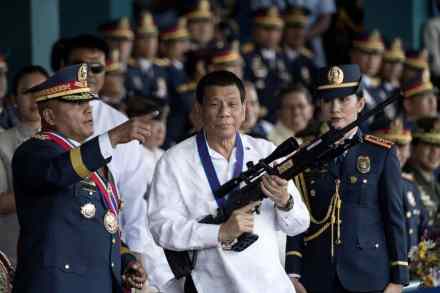How Duterte Harry’s legacy of terror lives on in the Philippines
Something momentous is building in the Philippines. Thirty-six years after the kleptocratic despot, Ferdinand Marcos, fled into exile with his family and 300 crates of loot aboard a US airforce transport plane, his only son, Ferdinand Marcos Junior is on course to win Monday’s presidential election. He’s known by his nickname ‘Bongbong’ and is not so junior these days. Now 64, he proudly praises the ‘political genius’ of his father and boldly promises that with another Marcos ensconced in Malacañang presidential palace, the Philippines ‘will rise again.’ The latest opinion polls put him 30 points clear of his liberal rival. It may seem like a remarkable feat of political resurrection



